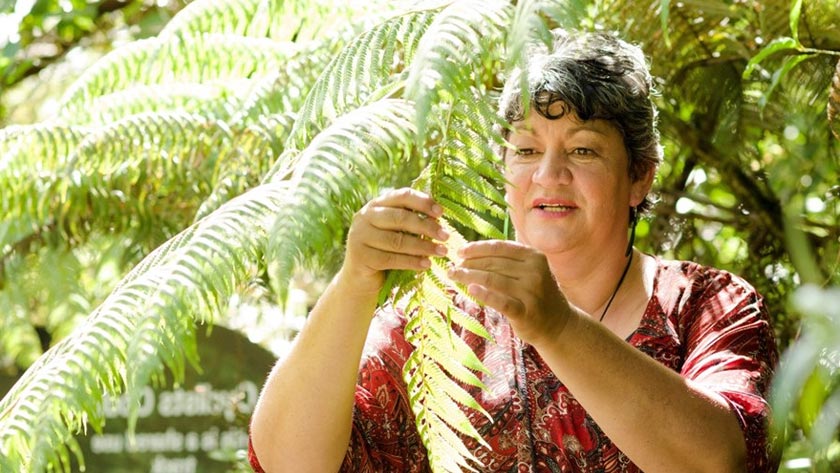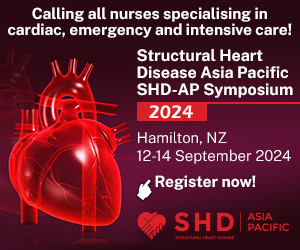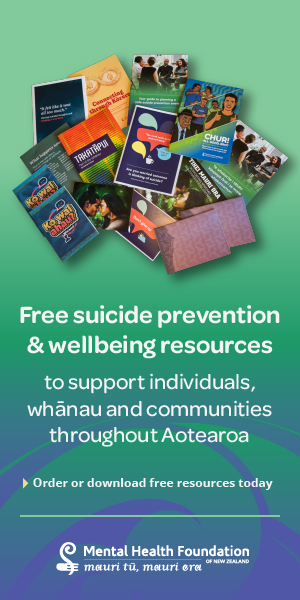Traditional Māori healing – rongoā – has a place in the modern health system, says practitioner Donna Kerridge (Tainui), but she is happy to work independently of it.
Kerridge spoke at the Whetū i te Rangi symposium on end-of-life care for Māori, held in Wellington in May.
“My goal is to nurture and strengthen rongoā Māori, to make it available to those who want it,” Kerridge told Kai Tiaki Nursing New Zealand. “I have mixed feelings whether we want to be part of the system that doesn’t get us, and has different values. To operate outside of your own system, in a system with different values, it’s not good for practice,” she said. “But I believe those who want it, should have access to it.”
While she’s based in Oakura, Northland, Kerridge gave up her clinic after she found it mostly drew the “worried well”. “What I really discovered was that the people who need the most help don’t come to clinics.”
Now, she travels all over Aotearoa, to reach those in need – often at the end of their lives or managing long-term or painful conditions. “I’m hardly in one place for very long.”
During lockdown last year, she said many Māori became cut off from a health system they already had little trust in. Those were the people she tried to reach, treating wounds and conditions such as leg ulcers, prolonged chest infections and muscle and bone pain. The practice involves use of medicinal plants as poultices or cough elixirs, mirimiri (massage), karakia and waiata. Traditional kai such as bone broth could also help build immunity and strength.
Much of her work involves people coming to the end of their lives – young and old. Recently, she spent three weeks on the Chatham Islands supporting a Māori man with a terminal illness. Working alongside a team of doctors and nurses, she fed him high–protein kai moana such as oysters and mussels, as well as providing mirimiri for several hours each day to relieve swelling in his legs so he could continue to move around. Guided by the person’s wishes, she provides karakia and connection. “He had visitors, prayers – and that lifted his spirits hugely. You would not have been able to do that in a facility,” Kerridge said. “He was able to die on his own terms.”
Some people she is close to, she cares for at her home during their final days, weeks or months. “But my husband has asked me, ‘Please, don’t bring anyone else home’.”
Providing end of life care, she says, is “the highest privilege – that complete and utter focus on that one person”.
Her care also extends to non-Māori, although she has faced scepticism from some families. She recently cared for a woman whose “husband didn’t want a bar of it, he said ‘don’t get involved in that hocus-pocus’. But she really wanted it”, Kerridge said.
“I absolutely value our modern health system, but no one system has all the answers,” she says. “I believe that many of our traditions have equal value. The people are better for having a choice.”
Many of the “old ways” are as relevant as ever. At a recent rongoā workshop at Kaipara Harbour, a Māori elder recalled how during the polio epidemic of the late 1940s, his mother gathered up her 10 children, took them out of school and kept them at home for the next two years. “They only left when absolutely necessary. They gardened and grew their own food and had bone broth,” Kerridge said. “It’s what they did to keep their children alive and healthy.”
For her, it’s about giving back to people the power to manage their own health and wellbeing. “I try to remind people that our health and wellbeing is in our hands. Our old people had some really good ways of managing some of the less serious health things.”
Northland District Health Board now offers rongoā services, and since last year ACC has also accepted rongoā claims.




